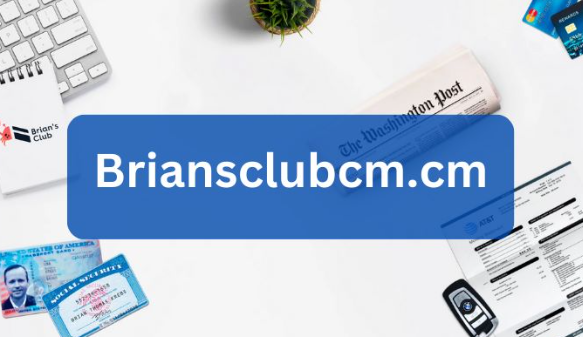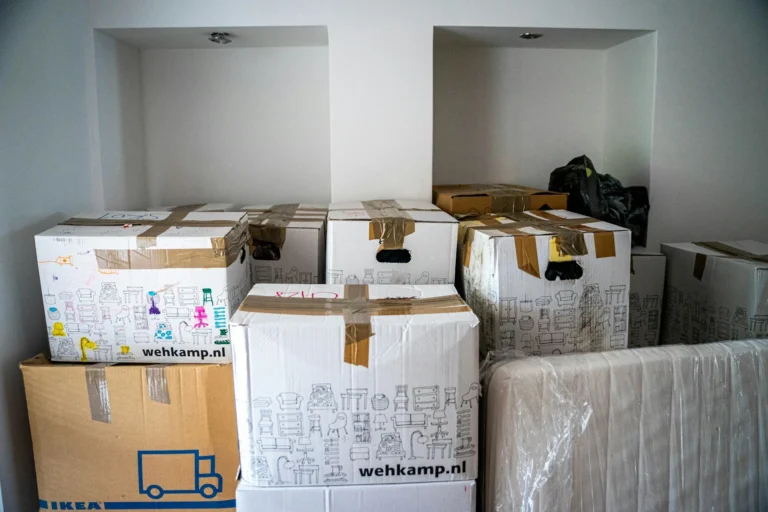Eco-Friendly Equipment Used by Professional Cleaners

Cleaning is essential to maintaining hygienic and healthy environments, whether in residential, commercial, or industrial settings. However, traditional cleaning methods often involve the use of harsh chemicals and non-sustainable practices, which can have detrimental effects on both human health and the environment. As awareness of environmental issues grows, there’s a shift towards adopting eco-friendly cleaning practices and equipment. For those seeking professional assistance, reliable home cleaning services Seattle can provide eco-friendly solutions tailored to individual needs and preferences.
Pro Tip: Start with the basics – eco-friendly cleaning products. Before delving into eco-friendly equipment, laying the foundation with environmentally safe cleaning solutions is crucial. Look for products labeled as “green,” “natural,” or “eco-friendly,” which typically contain biodegradable ingredients and fewer harsh chemicals. Additionally, consider making your cleaning solutions using simple household ingredients like vinegar, baking soda, and lemon juice for a more sustainable approach.
Contents [show]
2. Vacuum Cleaners
Vacuum cleaners are pivotal in removing dust, dirt, and allergens from various surfaces, making them indispensable tools for professional cleaners. However, traditional vacuum cleaners may contribute to indoor air pollution by recirculating fine particles and allergens back into the air. This is where eco-friendly vacuum cleaners, equipped with High-Efficiency Particulate Air (HEPA) filters, come into play.
Pro Tip: Look for vacuums with HEPA filters to improve indoor air quality. HEPA filters can trap microscopic particles such as dust mites, pollen, pet dander, and even bacteria, preventing them from being released into the air. By investing in a vacuum cleaner with a HEPA filter, professional cleaners can ensure thorough cleaning while maintaining a healthier indoor environment for occupants.
3. Steam Cleaners
Steam cleaning is an effective and environmentally friendly method for removing dirt, grime, and stains from various surfaces without harsh chemicals. Using high-temperature steam, steam cleaners, including those sought after for services like ‘Seattle home cleaner,’ can sanitize and disinfect surfaces while reducing water consumption compared to traditional cleaning methods.

Pro Tip: Opt for steam cleaners with adjustable pressure settings for versatile cleaning tasks. Different surfaces may require varying degrees of steam pressure for optimal cleaning results. By choosing a steam cleaner with adjustable pressure settings, professional cleaners can customize their cleaning approach according to the specific requirements of each surface, whether it’s delicate upholstery or stubborn tile grout.
4. Microfiber Cleaning Cloths
Microfiber cleaning cloths have gained popularity in recent years due to their superior cleaning abilities and environmental benefits compared to traditional cotton cloths. Made from ultra-fine synthetic fibers, microfiber cloths are highly absorbent, effectively trapping dirt, dust, and bacteria without additional cleaning agents.
Pro Tip: Wash microfiber cloths in cold water to save energy and extend their lifespan. Unlike cotton cloths, which may require hot water for effective cleaning, microfiber cloths can be laundered in cold water without compromising their cleaning performance. By washing microfiber cloths in cold water and air-drying them whenever possible, professional cleaners can reduce energy consumption and prolong the longevity of their cleaning tools.
5. Green Cleaning Solutions
Traditional cleaning agents often contain harsh chemicals that can pose health risks to both cleaners and building occupants and contribute to environmental pollution. In contrast, eco-friendly cleaning solutions utilize natural, biodegradable ingredients that are safer for human health and the planet. These solutions effectively remove dirt, grease, and stains without leaving behind toxic residues.
Pro Tip: Dilute concentrated cleaning solutions to reduce waste and save money. Many eco-friendly cleaning products come in concentrated forms that can be diluted with water for various cleaning tasks. By diluting these solutions according to the manufacturer’s recommendations, professional cleaners can extend the lifespan of their cleaning products, minimize packaging waste, and reduce overall cleaning costs.
6. Automatic Scrubbers
Automatic scrubbers are essential for efficiently cleaning large floor areas in commercial and industrial settings. These machines use water, cleaning solution, and scrubbing brushes or pads to remove dirt, stains, and grime from hard surfaces such as tile, concrete, and vinyl.
Pro Tip: Choose scrubbers with energy-efficient motors to minimize electricity consumption. As automatic scrubbers are often used for extended periods, opting for models equipped with energy-efficient motors can significantly save energy over time. Additionally, consider choosing scrubbers with features such as variable speed settings and automatic shut-off functions to optimize energy usage during operation further.
7. Biodegradable Trash Bags
Traditional plastic trash bags contribute to environmental pollution and landfill waste due to their non-biodegradable nature. In contrast, biodegradable trash bags are made from renewable materials such as plant-based plastics or compostable polymers, which break down naturally over time.
Pro Tip: Opt for compostable trash bags to further reduce waste. Compostable trash bags are designed to break into organic matter when subjected to composting conditions, reducing the need for conventional landfill disposal. Professional cleaners can use compostable trash bags to minimize their environmental footprint and support sustainable waste management practices.
8. Green Floor Polishers
Maintaining clean and polished floors is essential for creating a positive impression in commercial and residential spaces. However, traditional floor polishing products often contain harmful chemicals and volatile organic compounds (VOCs) that can negatively impact indoor air quality and human health. Eco-friendly floor polishers utilize water-based formulations that are safer for cleaners and building occupants.
Pro Tip: Use water-based floor polishes to minimize chemical exposure and VOC emissions. Water-based floor polishes offer comparable performance to traditional oil-based products but with significantly lower levels of VOCs and toxic emissions. By choosing water-based floor polishes, professional cleaners can achieve glossy, streak-free finishes while prioritizing indoor air quality and environmental sustainability.
9. Low-Flow Carpet Cleaners
Carpet cleaning is a common task in commercial spaces. Still, traditional carpet cleaning methods can be water-intensive and may use harsh chemicals that harm the environment and indoor air quality. Low-flow carpet cleaners address these concerns using advanced technology to minimize water consumption while effectively removing dirt, stains, and allergens from carpets.
Pro Tip: Pre-treat stains with natural solutions before using carpet cleaners to reduce chemical usage. Before using a low-flow carpet cleaner, professional cleaners can pre-treat stubborn stains with natural solutions such as vinegar, baking soda, or hydrogen peroxide. This helps to loosen the stain and reduces the need for harsh chemical cleaners, making the cleaning process more eco-friendly.
10. Energy-Efficient Pressure Washers
Pressure washers are valuable for outdoor cleaning tasks such as removing dirt, mold, and grime from building exteriors, sidewalks, and parking lots. However, traditional pressure washers can be energy-intensive and may contribute to water waste. Eco-friendly pressure washers address these concerns by incorporating energy-efficient features and water-saving technologies.
Pro Tip: Adjust pressure settings based on surface sensitivity to prevent damage and conserve water. Professional cleaners should be mindful of the surface they are cleaning and adjust the pressure settings of the pressure washer accordingly. Excessive pressure on delicate surfaces can cause damage, while lower pressure settings can still achieve effective cleaning while conserving water and energy.
11. Green Disinfectant Sprayers
Disinfection is critical in cleaning, especially in healthcare facilities, schools, and high-traffic areas where the risk of spreading infectious diseases is high. However, many traditional disinfectants contain harsh chemicals that can harm human health and the environment. Eco-friendly disinfectant sprayers offer effective disinfection without the use of toxic chemicals.
Pro Tip: Use EPA-certified disinfectants and follow proper dilution guidelines for optimal results. When using eco-friendly disinfectant sprayers, it’s essential to choose products certified by the Environmental Protection Agency (EPA) for their efficacy against pathogens. Additionally, professional cleaners should follow the manufacturer’s instructions for proper dilution ratios to ensure adequate disinfection while minimizing chemical usage.
12. Eco-Friendly Window Cleaning Tools
Window cleaning is an essential part of maintaining clean and bright indoor spaces. Still, traditional window cleaning methods often involve using chemical-based cleaners that can harm both human health and the environment. Eco-friendly window cleaning tools utilize natural ingredients and innovative designs to achieve sparkling, streak-free windows without harsh chemicals.
Pro Tip: Use vinegar-based solutions for streak-free window cleaning without harmful residues. Vinegar is a natural and effective alternative to chemical-based window cleaners, thanks to its acidic properties that help to dissolve dirt and grime while leaving behind a streak-free shine. Professional cleaners can mix vinegar with water in a spray bottle and use it with a microfiber cloth or squeegee for eco-friendly window cleaning.
13. Battery-Powered Equipment
Battery-powered cleaning equipment offers flexibility and mobility compared to traditional corded tools, allowing professional cleaners to tackle cleaning tasks in various locations without being tethered to power outlets. Additionally, advances in battery technology have led to the development of more energy-efficient and eco-friendly options that reduce reliance on fossil fuels and minimize carbon emissions.
Pro Tip: Invest in rechargeable batteries and recycle old ones to minimize environmental impact. When choosing battery-powered cleaning equipment, opt for models that utilize rechargeable batteries instead of disposable ones. Rechargeable batteries can be used multiple times, reducing waste and lowering overall environmental impact. Additionally, professional cleaners should properly recycle old batteries to prevent hazardous materials from entering the environment.
14. Solar-Powered Cleaning Gadgets
Solar-powered cleaning gadgets harness the sun’s energy to power various cleaning tools and devices, offering a sustainable and renewable alternative to traditional battery-powered or corded equipment. From solar-powered backpack vacuums to outdoor solar lights for night cleaning, these gadgets utilize photovoltaic panels to convert sunlight into electricity, reducing reliance on grid power and fossil fuels.
Pro Tip: Utilize natural sunlight to charge solar-powered gadgets and maximize efficiency. To ensure optimal performance, professional cleaners should position solar-powered gadgets in areas with ample sunlight for charging. Additionally, consider investing in portable solar chargers that can be used to recharge gadgets while on the go, further reducing reliance on grid electricity.
15. Sustainable Mop Systems
Mop and bucket systems are commonly used for floor cleaning in residential and commercial settings. Still, traditional cotton mops can contribute to environmental pollution due to the high water and chemical usage required. Sustainable mop systems offer eco-friendly alternatives by utilizing reusable mop heads made from recycled materials and innovative designs that reduce water consumption and chemical usage.
Pro Tip: Choose mop heads made from recycled materials for added sustainability. When selecting mop heads for sustainable mop systems, choose options from recycled materials such as plastic bottles or polyester fibers. Not only do these mop heads effectively clean floors, but they also help divert waste from landfills and conserve natural resources.
16. Green Air Purifiers
Indoor air quality is a significant concern in cleaning environments, as poor air quality can negatively impact the health and well-being of building occupants. Green air purifiers offer an eco-friendly solution to indoor air pollution by utilizing advanced filtration technologies to remove airborne contaminants, such as dust, pollen, and mold spores, without chemical-based air fresheners or deodorizers.
Pro Tip: Place air purifiers strategically to maximize coverage and effectiveness. To achieve optimal air purification results, professional cleaners should place green air purifiers in areas with high levels of indoor air pollution, such as near entrances, common areas, or near sources of pollutants, such as cooking areas or printers. Additionally, regularly clean and maintain air purifiers to ensure efficient operation and prolong the lifespan of the filters.
17. Biodegradable Sponges and Brushes
Traditional cleaning sponges and brushes are often made from synthetic materials that are not biodegradable and contribute to environmental pollution when disposed of. Biodegradable sponges and brushes offer a sustainable alternative using natural materials such as plant fibers or cellulose, which break down naturally over time without harming the environment.
Pro Tip: Regularly clean and sanitize reusable sponges and brushes to prolong their lifespan. To maximize the sustainability of biodegradable cleaning tools, professional cleaners should practice proper maintenance and hygiene. Regularly clean and sanitize reusable sponges and brushes to prevent bacterial growth and extend their lifespan, reducing the need for frequent replacements and minimizing waste.
18. Non-Toxic Pest Control Devices
Pest control is essential to maintaining clean and hygienic environments, especially in commercial and residential settings. However, traditional pest control methods often rely on chemical pesticides that can harm human health and the environment. Non-toxic pest control devices offer an eco-friendly alternative using innovative technologies such as ultrasonic waves or natural repellents to deter pests without harmful chemicals.
Pro Tip: Implement integrated pest management strategies for long-term pest prevention. In addition to using non-toxic pest control devices, professional cleaners should adopt integrated pest management (IPM) methods to manage pest infestations effectively. IPM focuses on prevention, monitoring, and control techniques that minimize reliance on chemical pesticides and promote ecological balance.
19. Environmentally Friendly Trash Compactors
Trash compactors are valuable tools for reducing waste volume and improving waste management efficiency in commercial and industrial settings. However, traditional trash compactors may contribute to environmental pollution due to their reliance on fossil fuels and non-sustainable materials. Environmentally friendly trash compactors offer sustainable alternatives by incorporating energy-efficient features and utilizing recycled materials in their construction.
Pro Tip: Compact recyclable materials separately to facilitate recycling processes. To maximize the environmental benefits of environmentally friendly trash compactors, professional cleaners should separate recyclable materials such as cardboard, paper, plastics, and metals before compacting. This reduces landfill waste and makes recycling processes more efficient and cost-effective.
20. Conclusion
In conclusion, adopting eco-friendly cleaning equipment by professional cleaners is essential for promoting sustainability, protecting human health, and minimizing environmental impact. From vacuum cleaners and steam cleaners to green floor polishers and solar-powered gadgets, a wide range of eco-friendly options are available to meet the diverse needs of cleaning professionals.
Pro Tip: Stay updated on advancements in eco-friendly technologies for continuous improvement in cleaning practices. As technology evolves and environmental awareness grows, innovations in eco-friendly cleaning equipment are continually emerging. Professional cleaners should stay informed about the latest developments in eco-friendly technologies and equipment to ensure they utilize the most effective and sustainable tools for their cleaning operations. By prioritizing eco-friendly practices and equipment, professional cleaners can play a crucial role in creating cleaner, healthier, and more sustainable environments for current and future generations.





